There’s always something new going on in AI, but “AI agents” is a macro trend I think everyone in business needs to be ready for—and especially anyone focused on impactful learning programs.
“The next big breakthrough in AI is AI Agents,” notes Aaron Levie, CEO of Box. “This is when AI goes from being used as an assistant to chat with to using AI to accomplish complete tasks that a human might otherwise have to perform. This moves AI from being a ‘read-only’ operation to fundamentally a ‘read/write’ operation. Ultimately, this brings us much closer to the full promise of AI, in particular in the enterprise, where AI can begin to complete any part of a workflow.”
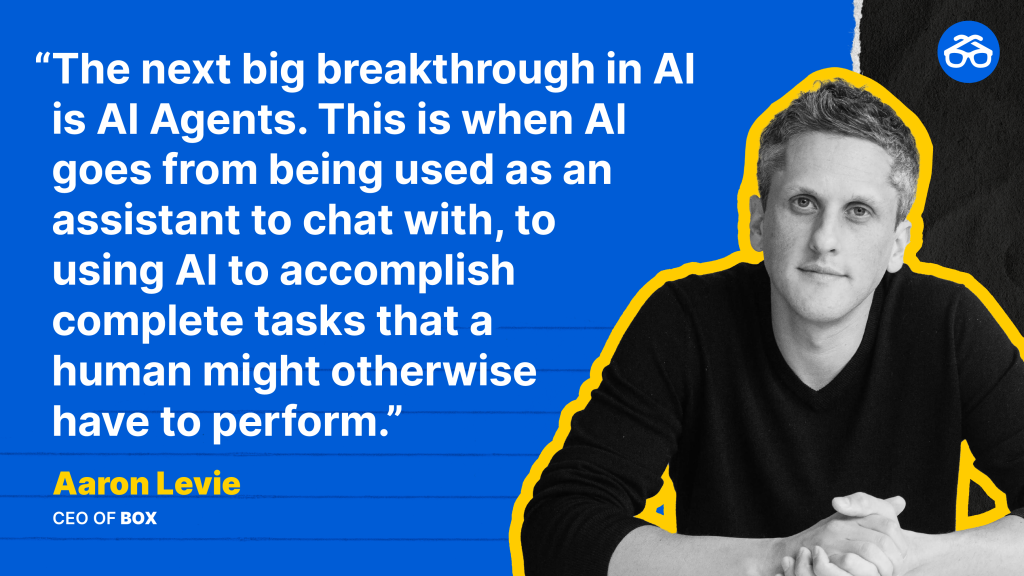
Here’s a closer look at what AI agents are, and what they mean for learning.
What are AI agents?
More than chatbots, AI agents are systems that have autonomy to make decisions and take action. Given a goal, they can make plans, execute tasks, and re-evaluate when necessary.
Let’s break it down with some examples of different levels of AI autonomy or “agentic” abilities. Similar to AI’s capabilities, naming conventions are all over the place. The following is a basic framework my team created to help us make sense of these capabilities. Level 1 is the most basic, and level 4 is the most advanced. Note: This is not meant to be definitive. In addition, categories and definitions can certainly bleed into each other.
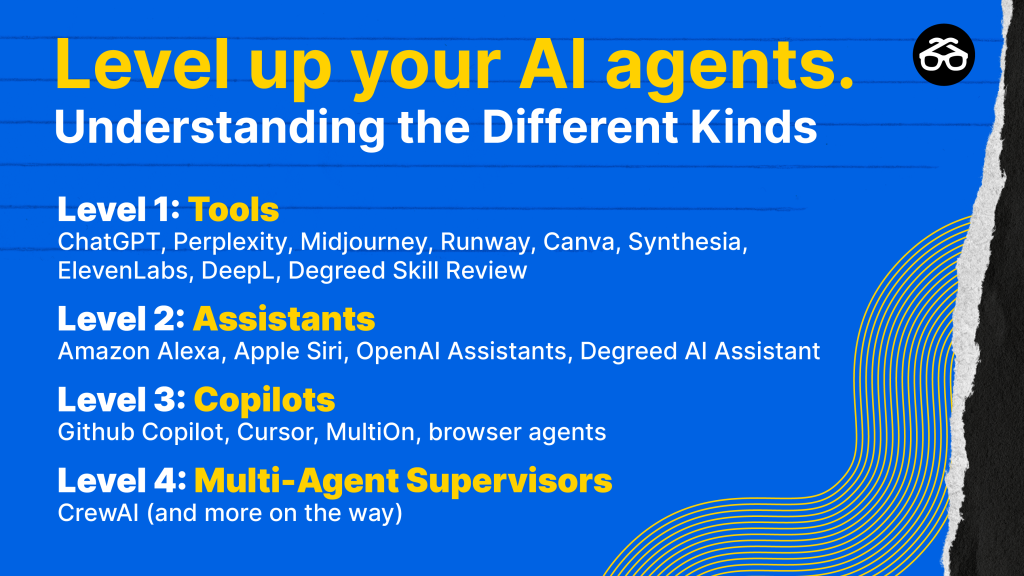
Level 1: AI Tools
You grab a tool from your toolbox. It does its job, and then you put it back. Similarly, AI tools are good at completing specific, narrow tasks that you define. These tools are seemingly everywhere these days, and they’re probably what most people have the most exposure to.
AI tools include:
- ChatGPT: for chatting, brainstorming, and generating copy
- Perplexity: for generating research reports
- Midjourney: for creating images
- Runway: for generating videos
- Canva: for creating graphics
- Synthesia: for creating video avatars
- ElevenLabs: for voice overs
- DeepL: for translation
At Degreed, we’re building AI tools such as Degreed AI Skill Review for analyzing your skills and other tools to help you maintain your learning content and enhance your learning ecosystem.
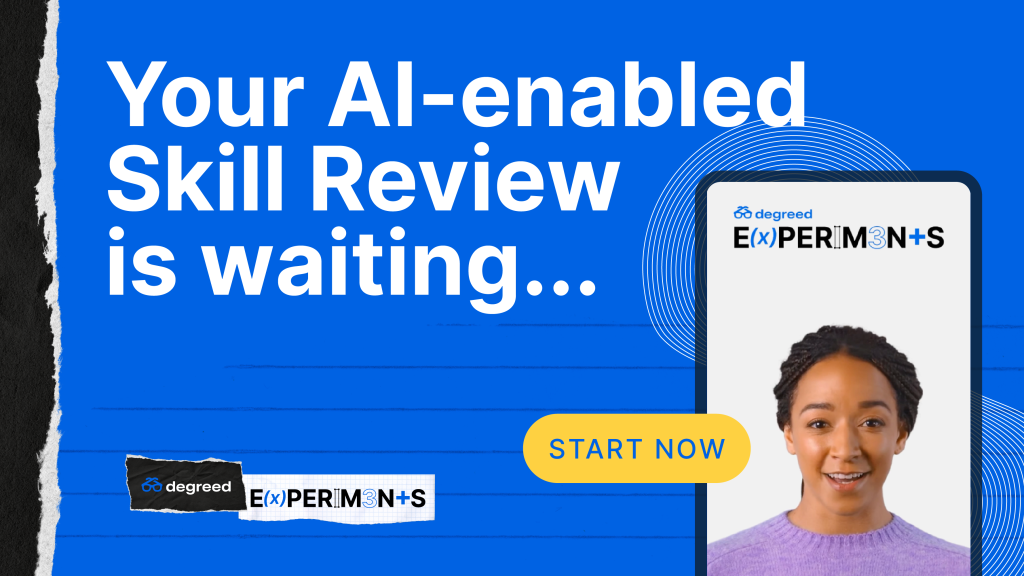
Level 2: AI Assistants
I don’t have an AI assistant, but I understand they’re great at augmenting your ability to get things done—like setting up meetings and completing other basic tasks. A good AI assistant knows your preferences and working style and can leverage multiple tools. This is where we see more autonomy in selecting the right tool to perform the right action.
AI assistants include:
- Assistants from OpenAI: for creating a GPT with custom instructions, documents, and tools
- Voice assistants like Apple Siri and Amazon Alexa: for asking questions and completing basic tasks
Our Degreed AI Assistant helps you find content, build a Pathway, and complete tasks in Degreed.
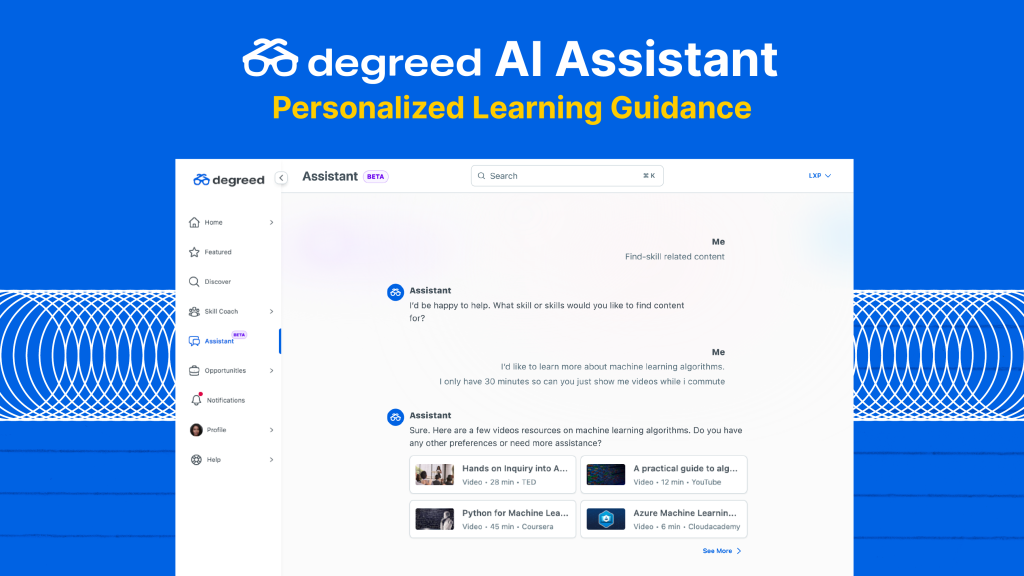
Level 3: AI Copilots
More than an assistant, a copilot takes the controls alongside you. You work together, side by side, to do the job. While not fully independent to do the work by itself, an AI copilot teams up with you to amplify the capabilities of a human and a machine.
AI copilots include:
- Github Copilot: for writing code
- MultiOn: for navigating the web and interacting with websites alongside you
At Degreed, we’re exploring copilots that can help you build and manage learning programs and AI tutors that can look over your shoulder to give you real-time feedback as you work to improve your skills.
Level 4: Multi-Agent Supervisors
At this level, AI helps manage other AI agents, each with specific capabilities. AI supervisors engage in planning, delegation of responsibilities, and evaluation of work by other AI agents to ensure they’re achieving the desired outcome. In these ways, supervisors exercise the most autonomy and have the most “agentic” of capabilities. It’s a level of AI we’re only beginning to see emerge.
Multi-agent supervisors include:
- Crew AI: for building multi-agent systems
- Strawberry: A yet-to-be-announced GPT-5 from OpenAI, codenamed Strawberry and rumored to have supervisor capabilities *
At Degreed, we’re exploring leveraging an AI supervisor to help build engaging learning experiences. This experimental Degreed Pathway supervisor coordinates amongst other agents to plan content, create content, find resources, extract quotes, do quality assurance, and ensure the Pathway is built to achieve its objectives. Next steps would be optimizing the experience based on real user activity.
What This All Means for L&D
First, all this innovation holds the promise of quickly improving L&D workflows. With AI agents, the end goal is to do more than simply use AI to do what you currently do faster and cheaper. However, that’s a good place to start. Why? Because applying AI to what you currently do is the simplest and easiest way to understand AI technology, its capabilities, and its limitations.
Second, start planning on inventing entirely new ways of doing things. The ways that we craft learning experiences, evaluate skills, and navigate careers are all ripe for reimagination. Find technology partners who are ready to support your internal R&D efforts. If you’d like to get more involved with Degreed Experiments, an initiative I lead, please email me. You don’t need to be a Degreed client!
Third, keep people at the center. The best way to navigate the limitations of AI and the AI anxiety of your workforce is to help facilitate AI and employees working together. For example, a learning design copilot can help craft visuals and manage translations, allowing your learning designers to strategize and align experiences to employee’s needs. The best way to advocate for the people in your company, and keep them at the center, is to be a credible voice about the possibilities, and limitations, of AI and AI agents.
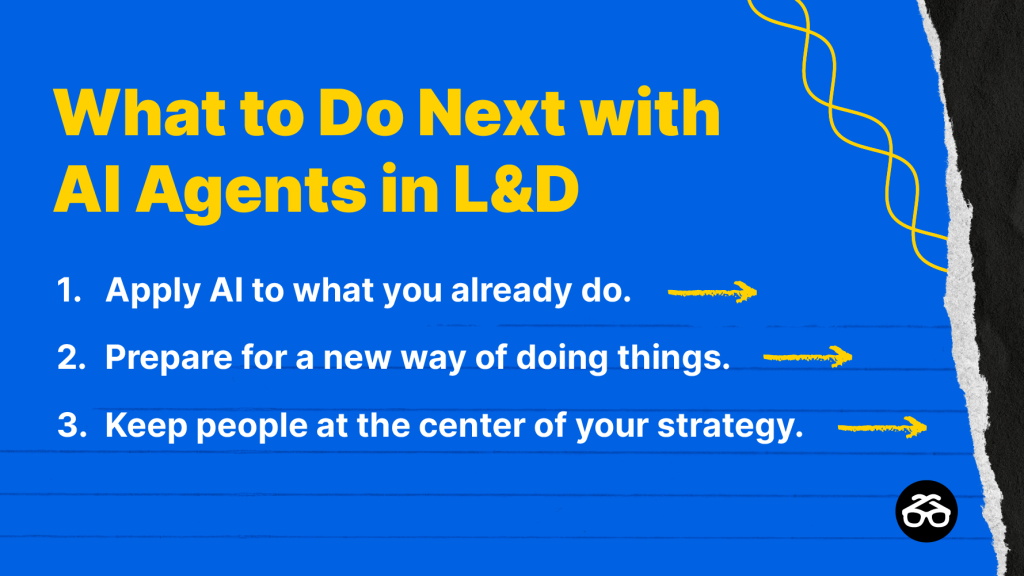
At Degreed, we want to help equip you to navigate these exciting developments. Get involved by checking out our AI experiments, learning more about navigating AI, or sending us your ideas for future experiments.
Join us as we unravel the future of AI agents and how we can get work done, together.
Find out more.

* Technology is advancing quickly, and examples of AI tools and their capabilities can quickly become outdated.
